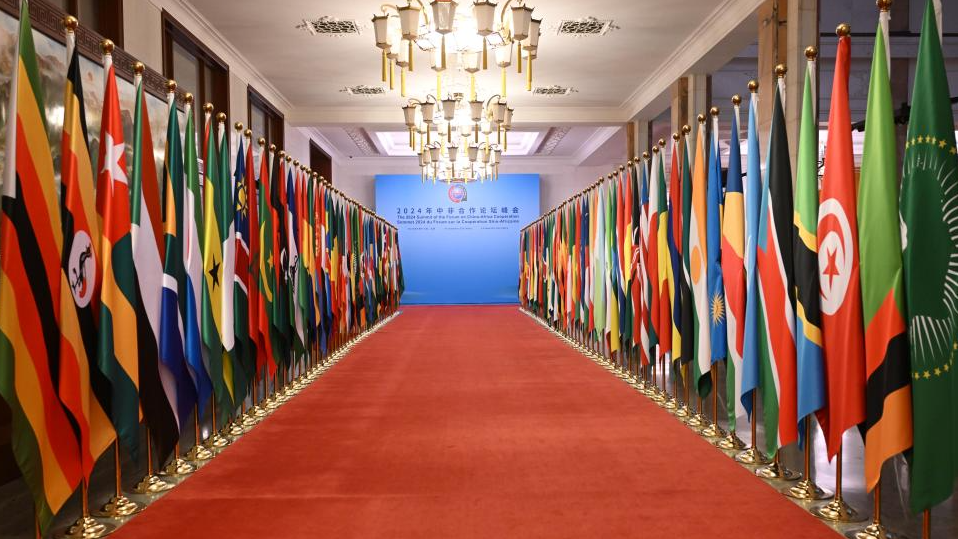
By Charles Muchoki | Africa Guardian
During his keynote speech at the 2024 Forum on China-Africa Cooperation (FOCAC) summit in Beijing on September 5, President Xi Jinping unveiled a new blueprint for China-Africa collaboration over the next three years, emphasizing a joint effort to advance modernization.
President Xi’s speech presented several distinctive elements, beginning with a “new” positioning of China-Africa relations. He proposed creating an all-weather China-Africa community with a shared future, reflecting the enduring importance of China-Africa ties, which have been a focal point of China’s foreign policy since the last century. He also highlighted that this modernization will be equitable, open, mutually beneficial, people-centric, inclusive, peaceful, secure, and eco-friendly. This vision aligns with China’s broader Global Development, Global Civilization, and Global Security Initiatives, underscoring the continuity of China’s policy towards Africa.
A second distinctive feature of Xi’s speech was a focus on “practical” measures. He introduced 10 partnership actions to promote modernization in Africa. These actions span a range of areas, including civilizational exchanges, trade promotion, and cooperation to strengthen industrial chains. These initiatives go beyond mere intentions, providing specific, actionable targets. For instance, under the “development cooperation partnership action,” China plans to implement 1,000 “small and beautiful” livelihood projects. Meanwhile, the “agricultural partnership action” aims to boost two-way investment, support value retention in African countries, and create at least 1 million jobs on the continent.
A third feature of the speech emphasized sincerity. Xi underscored that China’s support for Africa’s modernization is genuine and will not be swayed by Western media provocations. The proposed 10 partnership actions are grounded in China’s capabilities and the developmental stages of African countries. For example, under the “trade prosperity partnership action,” China will grant zero-tariff treatment to 100 percent of tariff lines for the 33 least-developed African countries, reaffirming China’s commitment as a responsible global power to support African modernization.
Ahead of the FOCAC Summit, a Chinese delegation, led by the author, visited Côte d’Ivoire, Sierra Leone, Senegal, and Mauritania to explore cooperation in key sectors like marine fisheries, mining, agriculture, and forestry. Each country offers unique opportunities: Côte d’Ivoire is a leading producer of cashew nuts and cocoa, Sierra Leone has substantial iron ore reserves, Senegal is a major peanut producer, and Mauritania is rich in marine fisheries.
China-Africa trade volume reached $282.1 billion in 2023. To raise this figure to $500 billion, China needs to import more African products. To achieve this, President Xi proposed expanding market access for African goods, including granting zero-tariff treatment to products from 33 African nations. This initiative aims to make China a larger market for Africa and boost trade volume between the two regions.
Africa is resource-rich but lacks sufficient manufacturing capacity, making its economy complementary to China’s. Through the “industry chain cooperation partnership action,” Africa could integrate into global industrial and value chains, promote industrialization, and retain more value while exporting resources. For example, Côte d’Ivoire consumes 650,000 tons of fish annually but can only produce 100,000 tons domestically. With China’s advanced tilapia farming technology, Côte d’Ivoire could close this gap, creating jobs, improving production, and increasing tax revenue and foreign exchange earnings.
One reason Africa’s development has lagged despite its rich resources is the shortage of skilled workers and advanced technology. This gap can be addressed through the “cultural exchange partnership action.” China is committed to advancing the Future of Africa-Vocational Education Cooperation Plan, establishing engineering institutes, and building 10 Luban Workshops, creating opportunities for Chinese investment in Africa.
The Institute for African Studies at Guangdong University of Foreign Studies and the Consulate General of Côte d’Ivoire in Guangzhou have signed a strategic cooperation agreement. This partnership allows Côte d’Ivoire to convey its human resource needs for industrial development, with the Institute providing necessary vocational education resources for Côte d’Ivoire nationals in Guangzhou.
During the delegation’s visit to West Africa, local officials expressed a desire for Chinese technical support in environmental protection. Companies like Shenzhen Zhongke Green Construction Environmental Protection Engineering Co., specializing in water pollution control and waste management, are poised to partner with African countries to support their green transition.
President Xi’s call for jointly advancing modernization provides a pathway for China and Africa to achieve a brighter and greener future together.
___
